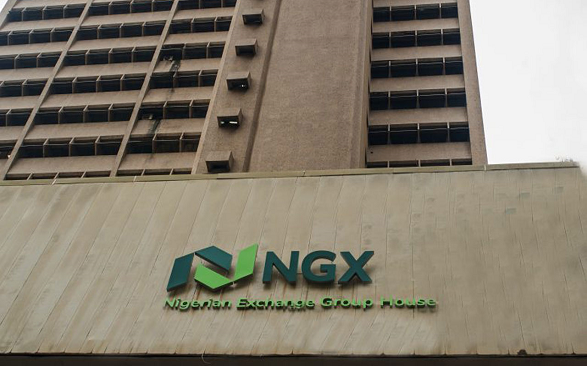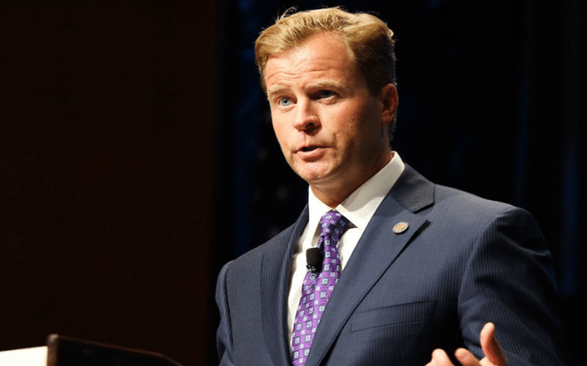The rate of adoption of cryptocurrency among other digital assets in African countries remains on the high increase, despite the regulatory challenges, and the recent downturns the market has been experiencing. According to theafricareport.com, “Cryptocurrency adoption in Africa grew 1200% between July 2020 and June 2021, making it the fastest adoption rate in the world”. One of the main reasons for this, as observed by do4africa.org, is “[t]he economic instability in Africa” as “Africans are transitioning to cryptocurrency.” Meanwhile the value of many cryptocurrencies has been drastically declining. As of this report, bitcoin price, at the time of writing, is $21,466.06 with 44.46% market dominance, a decrease of 0.23% over 24 hours, according to Coinmarketcap.com.
Earlier in June 2022, Nigerian Exchange Ltd disclosed its plans to start a blockchain-enabled exchange platform by 2023 “to deepen trade and lure young investors to the market”, Bloomberg reported.
Perhaps two major developments in Nigeria may have encouraged this plan. First, the recent introduction of rules for digital assets exchanges by the Securities and Exchange Commission (SEC) Nigeria. The SEC released the New Rules on Issuance, Offering Platforms and Custody of Digital Assets in May 2022.
Second, the growing interest in blockchain adoption by businesses and policymakers across Africa. The Chief Executive of Nigeria Exchange Ltd, Temi Popoola, disclosed in an interview that the company will deploy the blockchain technology in settling capital-market transactions.
The company’s other motivation for adopting blockchain to facilitate its trade is the increasing population of young Nigerians engaged in crypto transactions. With the underlying technology behind crypto transactions being blockchain, crypto adopters enjoy cheaper, easier, and faster access to the crypto market, globally, from wherever they are. “Digitizing transactions will help attract young buyers looking for diversified products as well as fast and easy access to the market”, Mr. Popoola believes.
“For a lot of young and upcoming Nigerians, that is the kind of technology they adopt and we want to see how we can deploy it to grow our market,” he said.
Nigerian Exchange Ltd. intends to partner with a technology firm, and get approval from the SEC, ahead of the launch in 2023, according to Mr. Popoola.
Blockchain is attracting a high level of attention from governments across African countries. South Africa and Kenya are also working to introduce their Central Bank Digital Currencies (CDBCs) after Nigeria introduced the eNaira in October 2021. The Central African Republic, in an unprecedented move in Africa, adopted bitcoin as its official currency last month.
There are two key points of note from the Nigerian Exchange Ltd’s move to adopt blockchain in settling trade.
First, the impact of regulation. The company cited the SEC Rules as the first motivation for their decision. Undoubtedly, with the right regulation in place—such as the SEC Rules—players in the space become validated and feel more secure to carry on business. Unlike the unfriendly approach of Nigeria’s Central Bank (the CBN), the SEC has given digital assets exchanges a regulated market to operate in.
Second, the available market. Another motivation for Nigerian Exchange Ltd. is the growing adoption of blockchain technology particularly amongst the youth population in Nigeria. The company sees this as an opportunity for customer expansion. Leverage is an important aspect of business, and an advantage to businesses and investors. In addition, the capital market gives room for the application of technology to facilitate its operation. As rightly observed by the Chief Executive of Nigerian Exchange Ltd., “Blockchain technology can facilitate different parts of the capital market, whether around creation of products or facilitation of the Exchange to trade financial assets”.
But the blockchain-powered platform will not be launched in 2023 until relevant regulators, including the SEC, give the greenlight. Besides, Nigeria Exchange Ltd still hopes to collaborate with a technology company for the purpose of developing the platform. So it is still a plan. Hopefully, The Nigeria Exchange Ltd will identify the right technology partner for the project. If the reactions of Nigerians to the announcement by the Central Bank of Nigeria (CBN) of Bitt Inc as the technology partner for the eNaira project is anything to go by, the Nigeria Exchange Ltd might need to consult widely. Also, before putting these plans and wishes out there, it is vital that the viability of adopting blockchain technology in any sector has been well researched and all stakeholders carried along as widely as possible. This will not only ensure that the Nigerian Exchange Ltd carries everyone along but also help it educate the target market as well as the members of the public about blockchain technology and its use cases in the stock market.
To ensure coordination and consistency with the adoption of blockchain technology across key sectors in the Nigerian economy, it is vital that players in both the private and public sector particularly consider the National Blockchain Adoption Strategy introduced by the National Information Technology Development Agency (NITDA). Until Nigeria approaches blockchain adoption from a national policy angle, the current unilateral efforts may remain in silos. Standardization and interoperability may also become a major challenge.
Nigerian Exchange Limited (NGX) is a subsidiary of Nigerian Exchange Group Plc (NGX Group), a leading integrated market infrastructure in Africa, championing the development of Africa’s financial markets. NGX Group provides a wide range of services including listing and trading securities, licensing, market data solutions, ancillary technology, regulation, real estate, and more through its wholly-owned subsidiaries.
Discover more from Crypto Asset Buyer
Subscribe to get the latest posts sent to your email.




